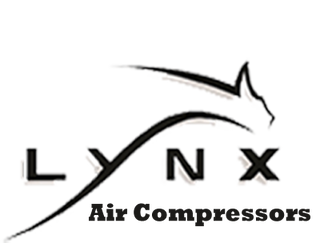
Air compressors are a vital part of many businesses, including automotive, manufacturing, woodworking, dry cleaning, and many other industries. An air compressor is a big investment, so keeping it healthy and maintained is mandatory. Here are a few ways to keep your compressor in tip-top shape!
- Right Size Selection: One of the critical factors in maximizing efficiency is selecting the right size compressor for your needs. Oversized compressors consume unnecessary energy during operation, while undersized ones strain to keep up with demand, leading to premature wear and reduced efficiency. Conduct a thorough assessment of your air requirements to determine the appropriate size and capacity needed for your applications.
- Regular Maintenance: Like any mechanical equipment, air compressors require regular maintenance to operate at peak efficiency. Implement a proactive maintenance schedule that includes tasks such as checking for air leaks, inspecting the compressor for damage, and replacing parts is key. Regular maintenance improves efficiency and extends the compressor's lifespan. Air compressors should be inspected annually or after every 2,000 hours of use, which is about two and a half months. Lynx can conduct service and maintenance for you, which saves you from the stress and hassle, and cuts down on time lost with your customers.
- Optimal Operating Conditions: Ensure that your air compressor operates under favorable conditions to maximize efficiency. Maintain proper ventilation to prevent overheating and ensure adequate airflow. Additionally, position the compressor in a clean, dry environment to minimize the risk of contamination, condensation, and corrosion, which can impair performance and efficiency over time.
- Use Energy-Efficient Models: When purchasing or upgrading air compressors, opt for energy-efficient models that meet industry standards such as ENERGY STAR certification. These units are designed with advanced technologies such as variable speed drives (VSD) and energy-efficient motors, which adjust compressor speed according to demand, resulting in significant energy savings.
- Pressure Optimization: Avoid operating the compressor at higher pressures than necessary, as this increases energy consumption. Conduct a pressure audit to determine the minimum pressure required for your applications and adjust the compressor accordingly. Installing pressure regulators and controllers can help maintain optimal pressure levels and prevent energy wastage.
- Pipeline Optimization: Efficient distribution of compressed air is essential for minimizing energy losses. Invest in high-quality piping systems with minimal leakage and pressure drops. Routinely inspect and repair any leaks in the air distribution network to prevent wasted energy and ensure consistent performance. For example, using smaller diameters of hose, such as a 3/8-inch diameter hose, helps greatly. The further the air travels from the compressor, the more pressure is lost. This can be a pain, especially if your main compressor is further away from where you are working. A satisfactory solution is to use an auxiliary tank, which can increase air pressure over long distances.
- Load Management: Implement load management strategies to match compressor output with actual demand. For instance, staggering equipment operation schedules or using multiple smaller compressors instead of one large unit can help optimize energy usage and reduce overall costs.
- Invest in Storage: Incorporating storage tanks or receivers into your compressed air system can improve efficiency by reducing cycling and allowing the compressor to operate at a steady state. This minimizes energy consumption associated with frequent starts and stops, particularly in fluctuating demand environments.
- Employee Training: Professionally train operators and maintenance personnel to operate and maintain air compressors effectively. Educate them on best practices for energy efficiency, such as proper shutdown procedures, leak detection, and regular monitoring of performance metrics.
- Monitor Performance: Implement a comprehensive monitoring and control system to track key performance indicators such as energy consumption, air quality, and equipment health. Utilize data analytics to identify trends, diagnose inefficiencies, and implement corrective actions to continually optimize compressor performance.
By implementing these tips, you can significantly enhance the efficiency of your air compressors, reducing energy consumption, operating costs, and environmental impact while maximizing productivity and reliability. Improving and maintaining your compressor solution affects your bottom line and contributes to a more sustainable and responsible business operation. For your next compressor purchase or maintenance, give our experts at Lynx a call!

